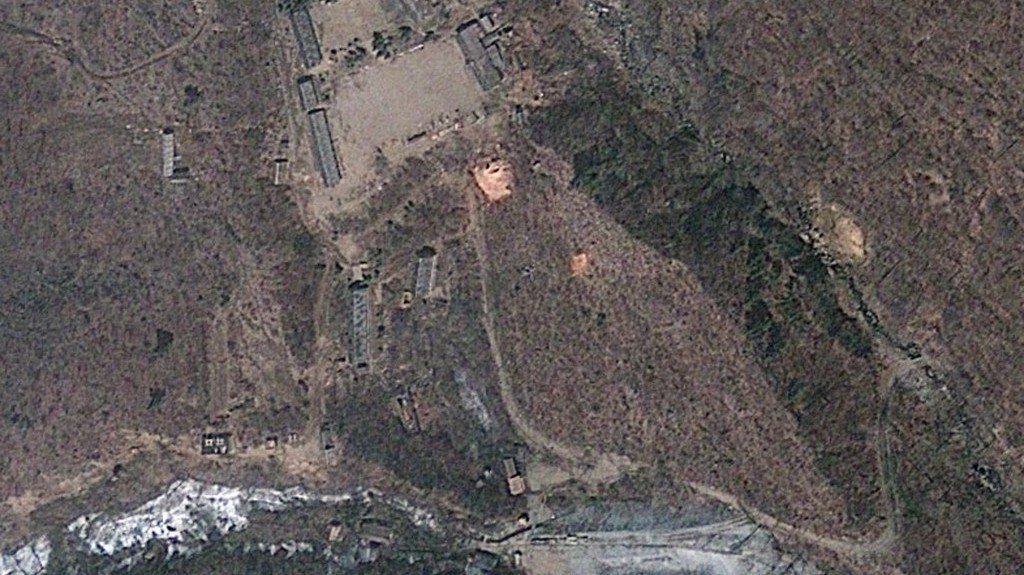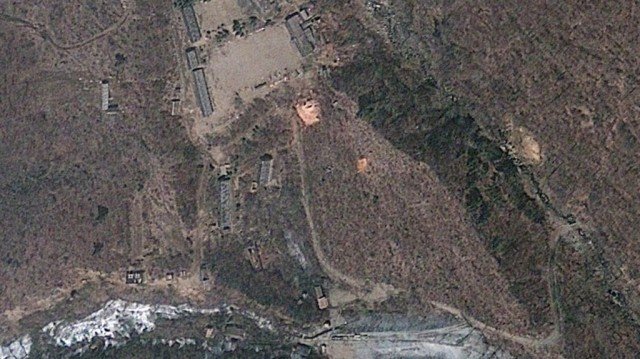
North Korea has successfully carried out its fifth nuclear test, Pyongyang has confirmed.
The government announcement on state media came hours after a seismic event was detected near North Korea’s nuclear test site.
According to South Korean officials, it is North Korea’s biggest ever test, raising fears the state has made real nuclear advances.
South Korea’s President Park Geun-hye called it an act of “self-destruction” showing the “maniacal recklessness” of leader Kim Jong-un. The US warned of “serious consequences”.
China’s foreign ministry said Beijing was resolutely opposed to the test and urged North Korea to avoid further action that would worsen the situation.
North Korea said the test had been of a “newly developed nuclear warhead” and that it was now capable of mounting a nuclear device on ballistic rockets.
South Korea’s military has suggested that the explosive yield of this blast could be almost twice that of the previous nuclear test. Analysts have expressed fears this could mean North Korea is a step closer to having a useable nuclear weapon.
Park Geun-hye, who is cutting short an overseas visit, said the test was a “grave challenge” to the international community that would “only earn more sanctions and isolation” for North Korea.
“Such provocation will further accelerate its path to self-destruction,” she said.
Japan’s PM Shinzo Abe said his country “absolutely cannot condone” any such test and would “protest adamantly” to Pyongyang.
“North Korea’s nuclear development is becoming a graver threat to Japan’s safety and severely undermines the peace and safety of the region and the international community,” he said.
The White House said President Barack Obama had spoken to both Park Geun-hye and Shinzo Abe after the latest test.
A statement from press secretary Josh Earnest said Barack Obama had “reiterated the unbreakable US commitment to the security of our allies in Asia and around the world”.
“The president indicated he would continue to consult our allies and partners in the days ahead to ensure provocative actions from North Korea are met with serious consequences.”
China’s foreign ministry statement read: “Today, [North Korea] again conducted a nuclear test despite widespread international opposition – the Chinese government firmly opposes the test.”
The test was first detected as a 5.3 magnitude earthquake on September 9 in north-east North Korea, close to its Punggye-ri underground nuclear test site.
As with previous nuclear tests, the waveform generated indicated it had not been naturally occurring.
South Korea’s Joint Chiefs of Staff later said the detonation had a yield of about 10 kilotonnes, making it North Korea’s “strongest nuclear test ever”.
That is almost twice the power of its last test in January, which Pyongyang said at the time had been a hydrogen bomb. Many analysts cast doubt on that claim. The bomb dropped by the US on Hiroshima in 1945 had a yield of about 15 kilotonnes.
A fifth test has long been expected. In recent weeks, satellite imagery has shown increased activity at Punggye-ri.
North Korea also often uses nationally important dates as an opportunity for a show of military strength. September 9 is its National Day, celebrating the founding of the current regime.
It is likely to be some time before the scale and manner of the test are independently confirmed.
Japan has dispatched military aircraft to collect air samples to monitor for radiation, while China said it was monitoring radiation levels close to its borders with North Korea.
North Korea is banned by UN sanctions from any tests of nuclear or missile technology.
In recent months it has conducted a series of ballistic missile launches – some of which reached Japanese waters – and has unleashed a rising tide of aggressive rhetoric, threatening nuclear attacks on its enemies.
North Korea has also been angered by a US and South Korean plan to install an anti-missile defense system in the South and by the allies’ massive annual joint military exercises, which are still taking place.
International sanctions on North Korea were considerably toughened in response to previous nuclear and missile tests but had little impact on Pyongyang’s nuclear arms program.
